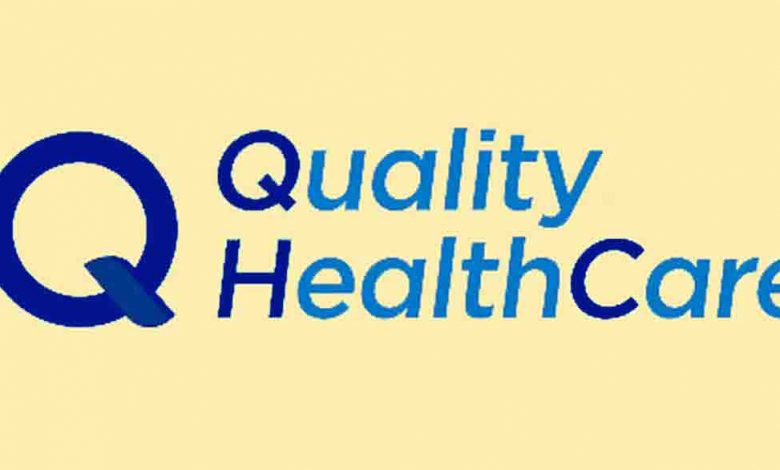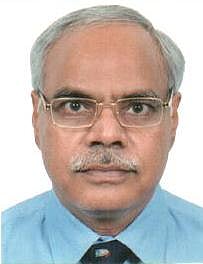Need of the hour : quality healthcare for all, everywhere

Monday, 18 July 2022 | Dr BKS Sanjay | in Guest Column
GUEST COLUMN
 Dr BKS Sanjay
Dr BKS Sanjay
Health, education and nutrition are the fundamental needs of every individual but healthcare services have not been given the prime importance they merit in our country. The healthcare services gradually started deteriorating in the last decade of the last century and kept on deteriorating till there was change in leadership of the central government.The services at these centres should be improved- the sooner the better.
There is a concept of establishment of at least a primary health centre (PHC) in each block of the district covering every 20,000-30,000 of the population.The first PHC was established in 1952 and there are 23,391 by 2021. The PHC has played a significant role in improving the healthcare services significantly since independence, particularly in earlier times when there were not many qualified doctors available, especially in rural and remote areas. The maternal mortality rate (MMR) and infant mortality rate (IMR) was quite high at the time of independence in 1947.MMR and IMR are good indicators of the healthcare services of any country. The system of PHC has also improved the delivery of universal immunisation programme. In addition to the many other programmes related to public health like TB, malaria, leprosy, encephalitis etc. Primary healthcare has also helped and propagated the concept of family planning programme to control the overpopulation in our country. The author remembers many instances as a child when a health worker used to visit every house during the small pox immunisation programme and as an adult for counselling of family planning, methods and distributing free contraceptive pills and condoms to the reproductive age group people.
It is not only my experience but I am sure it may be your experience as well, that in India, the health needs of most of the people are competing with the basic human needs like food, shelter and education. In India, we are still not realising the importance of good health and the government is still figuring out how to keep our fellow countrymen healthy. The WHO asserts, following countless studies, that nations which invest well in universal healthcare makes a sound investment in their human resource. Access to affordable healthcare will not only truly improve someone’s health and life expectancy, but also will reduce poverty, create jobs and drive the economic growth of the nation. The current government under the leadership of Prime Minister Narendra Modi has introduced Universal Health Coverage which is showing fruitful results which I can say for sure for a number of patients who were not getting free or subsidised healthcare services in private hospitals and were coming to the government healthcare services provider but after the introduction of Ayushman Bharat Yojana these people are getting free healthcare, not only in the government hospitals but in thousands of private hospitals. The Government of India has started Ayushman Bharat Yojana, Pradhan Mantri Jan Arogya Yojana or National Health Protection Scheme which will cover 10 crore poor families or approximately 50 crore beneficiaries providing coverage up to Rs five lakh per family per year for secondary and tertiary care hospitalisation. This scheme provides cashless benefits from any public or private empanelled hospitals across the country. This is a great relief especially to the poor and needy people. According to a government report since the inception of Ayushman Bharat Yojana more than three crore people have been benefited and I am sure if the patients and doctors honestly take the advantage of this scheme then it will really be a turning point in the improvement of healthcare services in India. After implementation of this scheme, the cost of treatment which usually deprives the poor patients of good affordable healthcare will not be a problem if the situation arises. This scheme is redistributing the pattern of healthcare services in India and the results are visible.
To achieve the goal of quality healthcare for everyone everywhere, PM Modi announced the schemes for establishment of 17 new AIIMS and a medical college in every district. The implementation of these schemes will also change the scenario of current healthcare services. It will augment the quality of healthcare services which are lacking in many rural, remote and tribal areas significantly. Many of my colleagues have a different view about this scheme. They say there are nearly six hundred (606) medical colleges and nearly one lakh (92,065) MBBS seats available as on March 16, 2022 cumulatively both in the private and government medical colleges. They say there are already so many doctors in the private sector, who are either having less work than their expectation and many of them are having the apprehension of unemployment even in the private sector. But, I have a very different opinion about the establishment of government medical colleges in every district. These government colleges will not only augment the healthcare services in the respective areas but will also reduce the number of patients in the tertiary care centres especially from surrounding areas. Overall the quality healthcare services will be more accessible, better and cheaper. First, these government medical colleges will work as a benchmark in healthcare services and they will also work as a role model for the medical and paramedical staff of that area. Second, the younger generation doctors will not only gain exposure and experience from the senior and experienced doctors of these medical colleges but many of them will emulate these senior doctors.Thirdly many of the senior and experienced doctors would like to settle in those areas where they were living for many years. It will also change the demography of the remote and rural areas. In my opinion, the impact of these new medical colleges will be long lasting in terms of bringing the changes socially, economically, geographically and demographically.
When schemes like Ayushman Bharat Yojana 2018, Ayushman Bharat Health Infrastructure Yojana 2021 and Atmanirbhar Swasth Bharat Yojana, will be implemented sincerely then the scenario of healthcare services in India will be changed. Though initially, it may not equal that of developed nations, it will be a step closer to them. Chinese philosopher Lao Tzu said that a journey of a thousand miles begins with one step. Indian Nobel laureate Rabindranath Tagore rightly said that it is never too late to be what you might have been. I would like to pray for all “Sarve bhawantu sukhinaha sarve santu niramaya”meaning may everyone be happy, may everyone be free from disease.
(A Padma Shri recipient, the author is an orthopaedic surgeon. Views expressed are personal)





